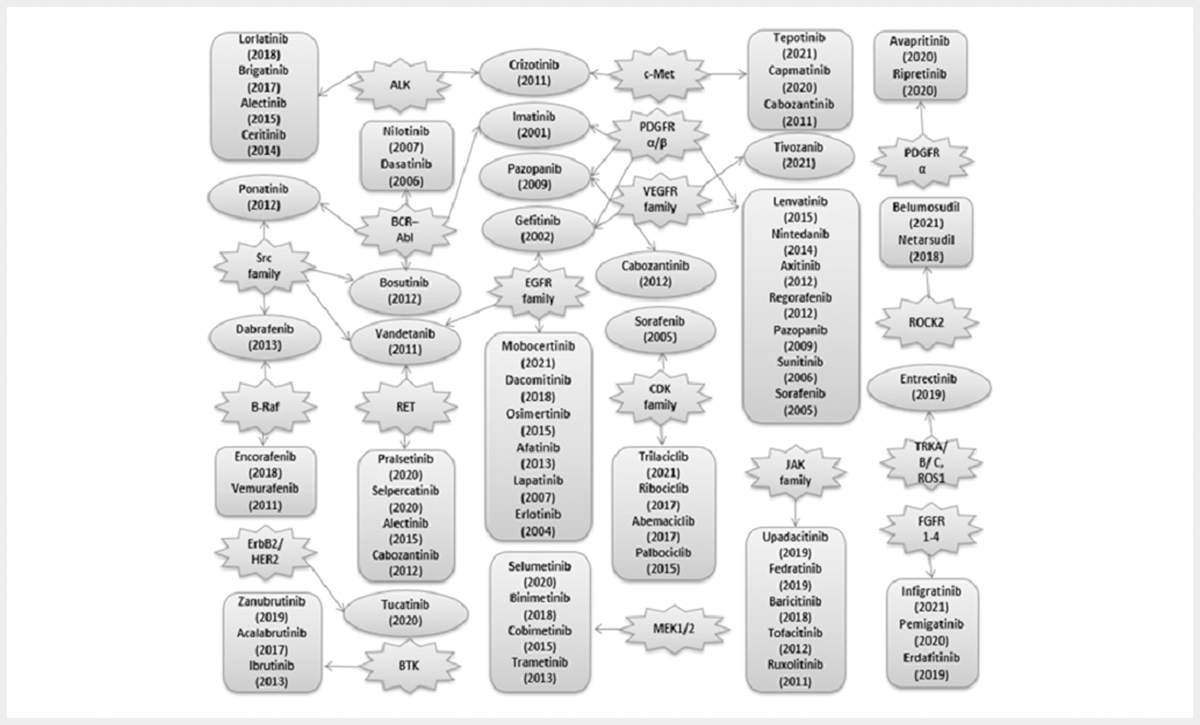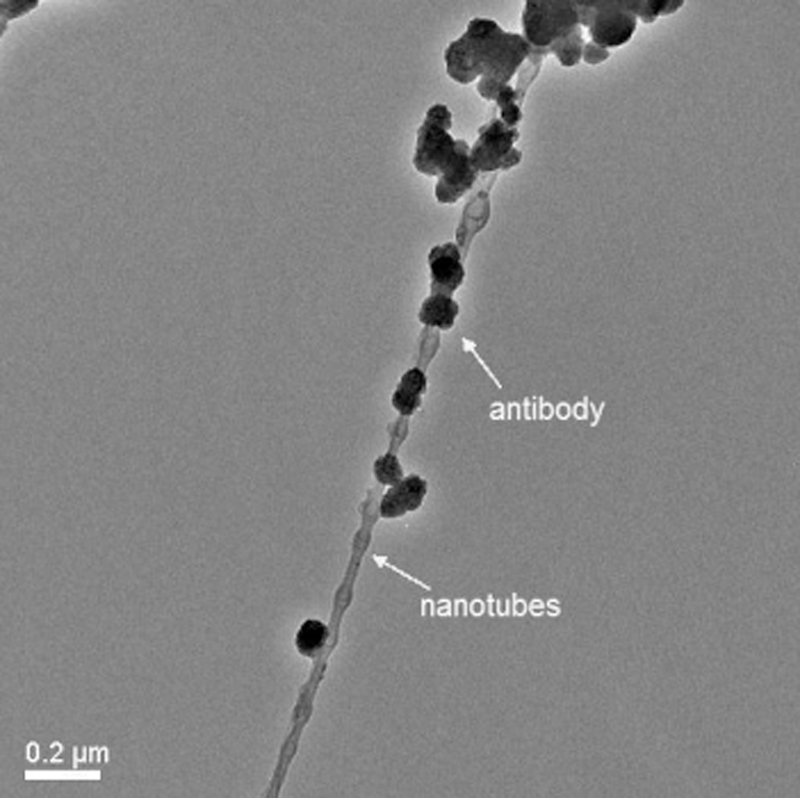

Highlighted articles
Review
Protein kinases: Role of their dysregulation in carcinogenesis, identification and inhibition
Niloy Sarkar, Amit Singh, Pankaj Kumar, Mahima Kaushik
Protein kinases belong to the phosphor-transferases superfamily of enzymes, which “activate” enzymes via phosphorylation. The kinome of an organism is the total set of genes in the genome, which encode for all the protein kinases. Certain mutations in the kinome have been linked to dysregulation of protein kinases, which in turn can lead to several diseases and disorders including cancer. In this review, we have briefly discussed the role of protein kinases in various biochemical processes by categorizing cancer associated phenotypes and giving their protein kinase examples. Various techniques have also been discussed, which are being used to analyze the structure of protein kinases, and associate their roles in the oncogenesis. We have also discussed protein kinase inhibitors and United States Federal Drug Administration (USFDA) approved drugs, which target protein kinases and can serve as a counter to protein kinase dysregulation and mitigate the effects of oncogenesis. Overall, this review briefs about the importance of protein kinases, their roles in oncogenesis on dysregulation and how their inhibition via various drugs can be used to mitigate their effects.

Original Article
Reza Ahmadifard, Abdollah Jafarzadeh, Merat Mahmoodi, Maryam Nemati, Mehdi Rahmani, Hossein Khorramdelazad, Fatemeh Ayoobi
Mesenchymal stem cells (MSCs) modulate immune responses, and their immunomodulatory potential can be enhanced using inflammatory cytokines. Here, the modulatory effects of IFN-γ-licensed MSCs on expression of T cell-related chemokines and chemokine receptors were evaluated using an experimental autoimmune encephalomyelitis (EAE) model.

Review
Mahdis Tajabadi
Conjugated single-walled carbon nanotubes (SWNT) have been shown to be promising in cancer-targeted accumulation and is biocompatible, easily excreted, and possesses little toxicity. The present study aims at reviewing the recent advancements in carbon nanotubes especially SWNT for improving the treatment of breast cancer. Nanotube drug delivery system is a potential high efficacy therapy with minimum side effects for future tumor therapy with low doses of drug.

